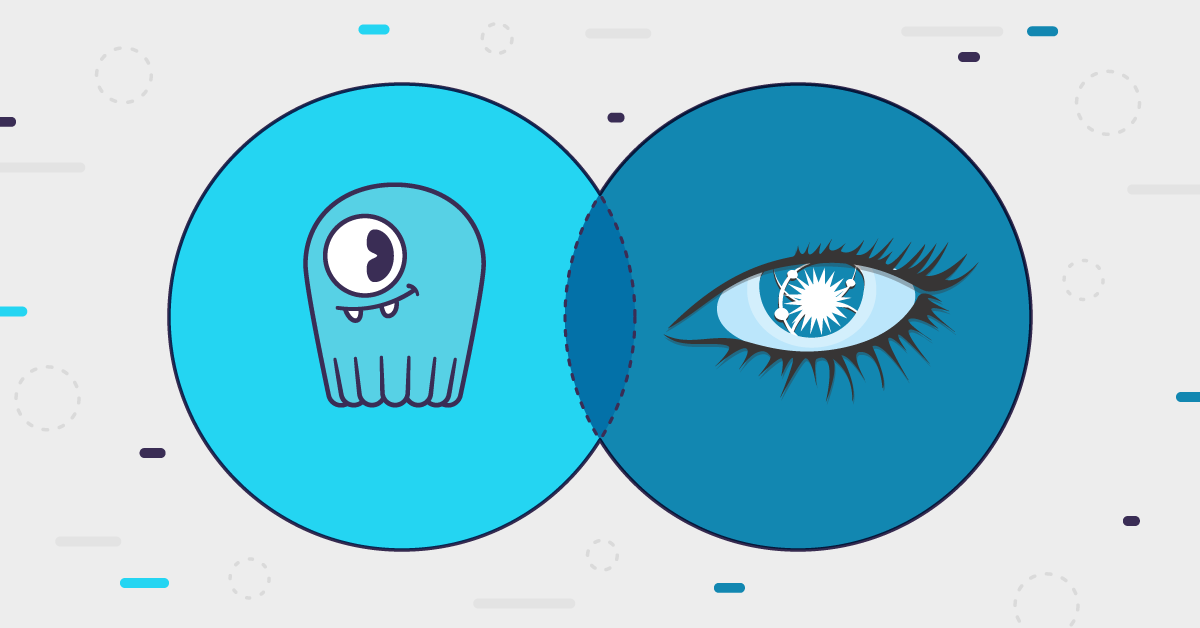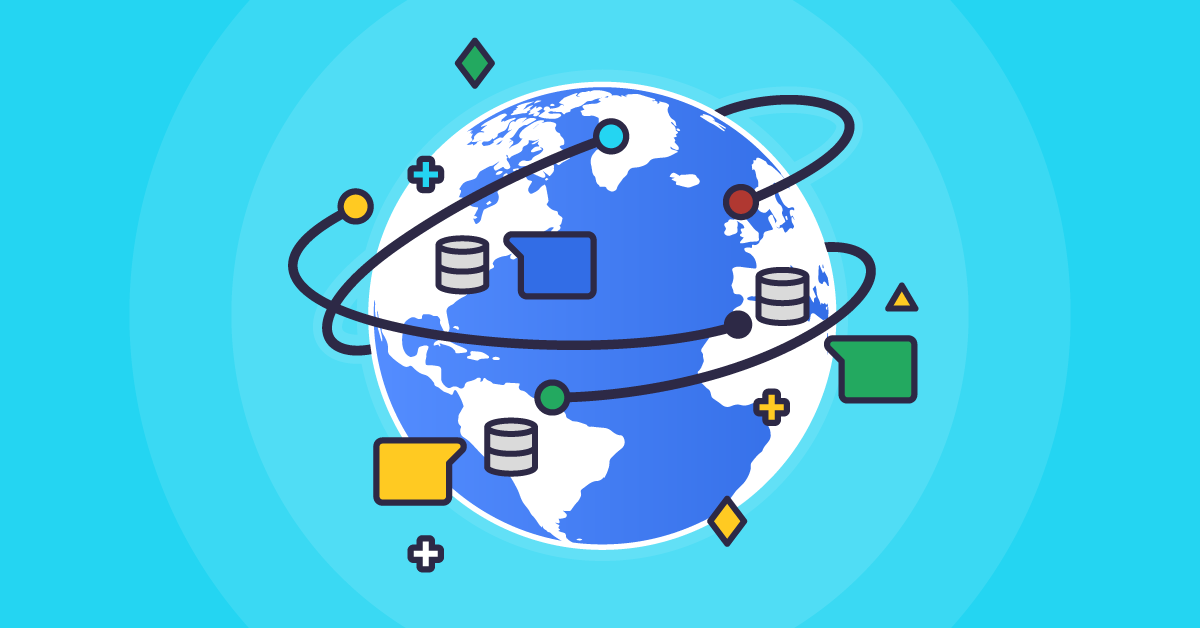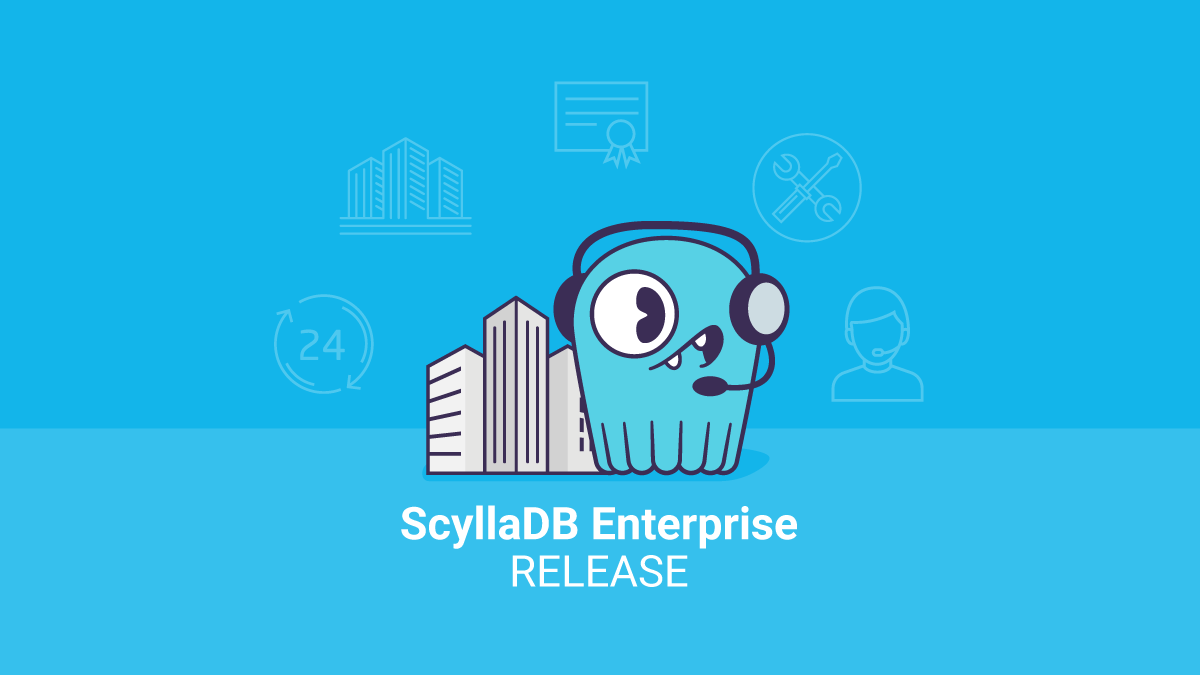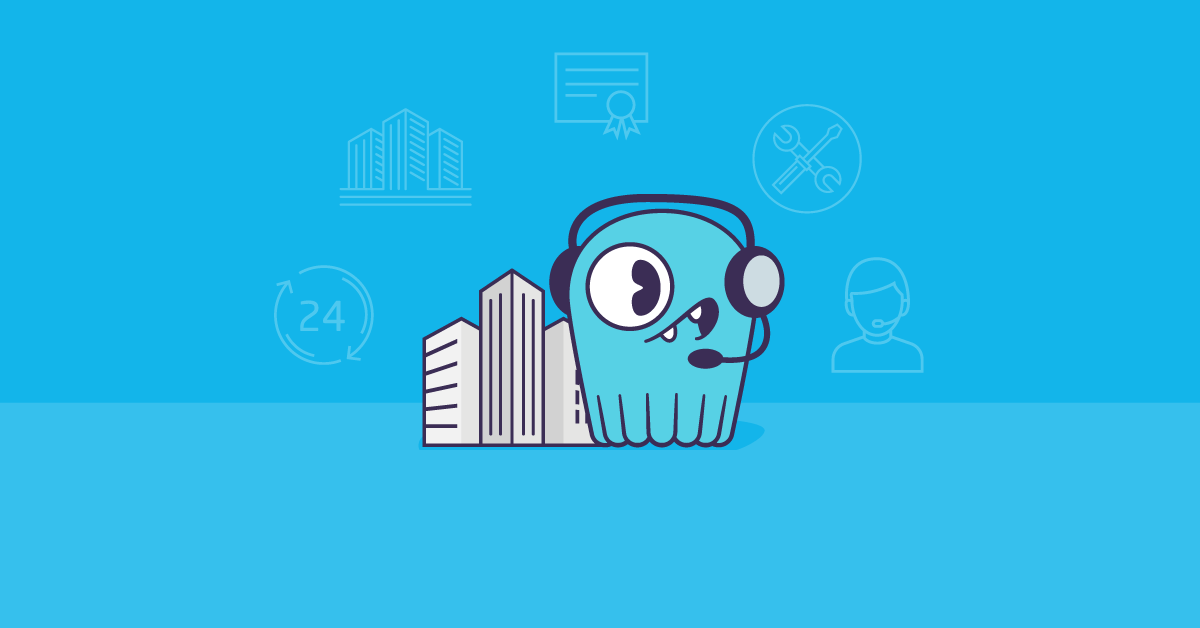
Starting with ScyllaDB Enterprise 2022.x we will introduce an Enterprise Feature (Minor) Release, which will closely follow the Open Source release’s latest features set. Support for annual Enterprise major releases will continue as-is and these will be named Long Term Support (LTS).
There is no change in the ScyllaDB Open Source release cycle.
Each customer can choose one of two “lanes” or a combination:
- Feature (Short Term Support) lane: follow the feature and LTS releases for the latest feature set. Customers can stay on the fast (feature) lane or merge to the (LTS) lane in the next Major release.
- Long Term Support lane: Use only the latest LTS releases, upgrading to the latest patch release for greatest stability.

Background
Historically, we released one Major (LTS) enterprise release per year, for example, 2021.1, followed by patch releases with bug fixes, for instance, 2021.1.10. We did not use Minor releases in prior Enterprise releases. As a result, the ScyllaDB Enterprise feature set lagged behind ScyllaDB Open Source.
We are fixing this with the new Enterprise Feature Release.
Semantic Versioning
We will continue to support Semantic Versioning for ScyllaDB Enterprise x.y.x
- X is a Major release – can be Long or Short Term (Feature) support; in most cases it will be Long Term Support
- Y is Minor, Feature release – Short Term support.
- Z is a Patch release – only includes bug fixes, never new features. A patch release can fix issues in Long Term or Feature release.
Theoretical Example:
“ScyllaDB Enterprise 2023.2.7”
- 2023 is the major version
- 2 is the minor version (in this case, a Feature release)
- 7 is the patch version
Solution
Later this year we are introducing a Short Term Support Feature release for ScyllaDB Enterprise.
Similarly to Ubuntu, we will have two types of Enterprise releases:
Long Term Support (LTS)
|
Feature Release (Short Term Support)
|
Examples:
- ScyllaDB Enterprise 2022.1 LTS (based on Open Source 5.0)
- ScyllaDB Enterprise 2022.2 Feature Release (based on Open Source 5.1)
- ScyllaDB Enterprise 2022.3 Feature Release (based on Open Source 5.2)
- …
- ScyllaDB Enterprise 2023.1 LTS
(Actual release numbering scheme may vary)

Supported Versions
- The last two Major Enterprise LTS versions are supported — as they are today.
- The last two Major/Minor Enterprise (feature or long-term support) versions are supported.
Examples (see diagram below)
- When 2022.2 is released: both 2022.2 (feature) and 2022.1 (long-term) will be supported and 2021.1 (two last LTS)
- When 2022.3 is released: 2022.2 and 2022.3 are supported (two last feature release), and 2022.1 and 2021.1 (two last LTS)
Note that ALL supported versions (major and minor) will get patch releases when required! For the second bullet above:
- 2022.2.x
- 2022.3.y
- 2022.1.z
- 2021.1.k
See the diagram below (ignoring the years and quotes; those are for illustration purposes only!)

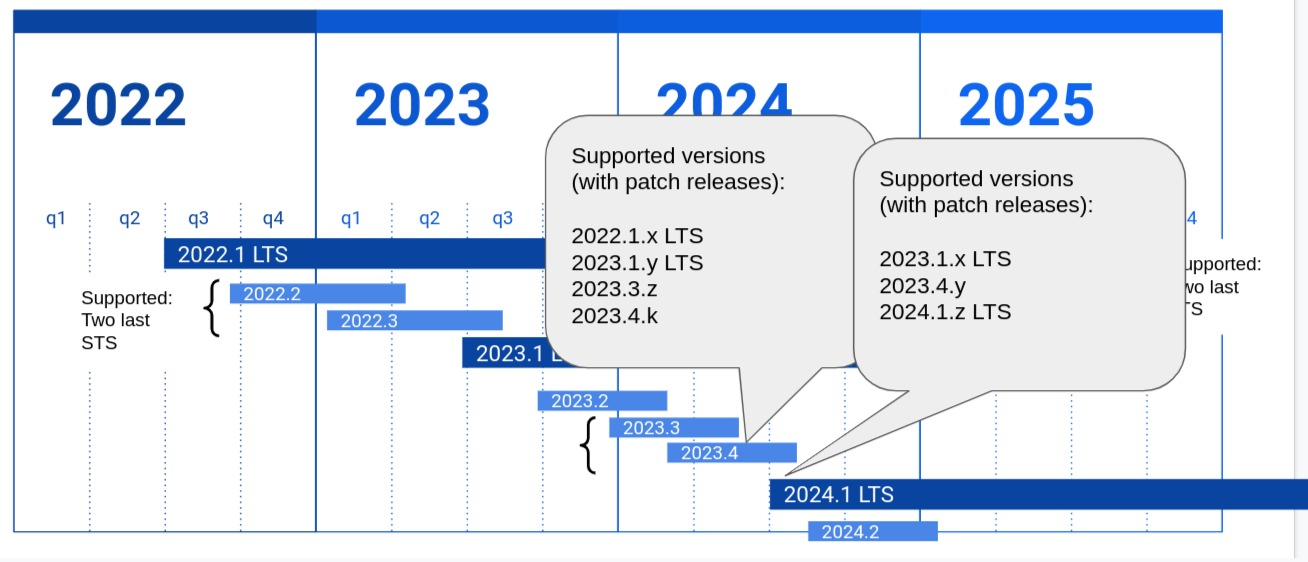
In this theoretical example, each ScyllaDB Enterprise major annual release is followed by potentially one or more minor (feature) releases. For example, at the point when 2023.4 was released, both LTS releases 2022.1 and 2023.1 would be supported, as well as feature releases 2023.3 and 2023.4. However, when 2024.1 was released, only 2023.1 and 2024.1 LTS releases would be supported along with the latest 2023.4 feature release.
Upgrade Path
- You can always upgrade from a patch version to the following patch version (for example, 2022.1.3 to 2022.1.4)
- You can always upgrade from the last Minor release to the next Major release
- You can always upgrade from a LTS version to the following LTS version (for example, 2021.1 to 2022.1)
- You can and should always upgrade to the latest Patch release
- You can NOT directly upgrade to a non-consecutive short-term releases 2022.1.x -> 2022.3.x; you would need to upgrade first from 2022.1.x to 2022.2.x, then upgrade to 2022.3.x.
- You can NOT upgrade directly to a non-consecutive LTS releases 2022.1.x -> 2023.2.y; users would first need to upgrade from 2022.1.x to 2023.1.x, and then to 2023.2.y.
Effect on Existing Customers
None! The existing long term support of the two last major releases is still valid.
Get Started with ScyllaDB Enterprise
You can get started with ScyllaDB Enterprise with a 30-day free trial. Also, ScyllaDB Enterprise is at the heart of our fully-managed cloud Database-as-a-Service (DBaaS), ScyllaDB Cloud. If you prefer a managed solution, you can register now for a free trial for ScyllaDB Cloud.

